| | |

Chapter 26
|
| | |
|
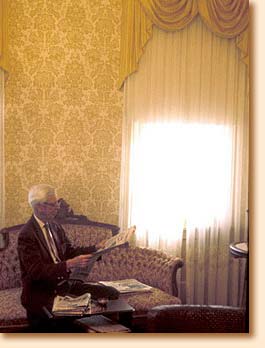 |
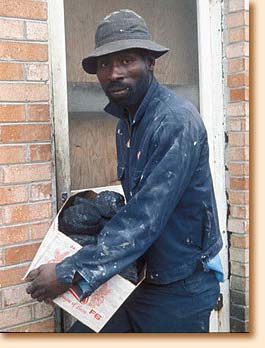 |
| | |
|
In Georgia where I lived with the Barnett family in one of the old
plantation homes, I learned about a different kind of racism, one not based on
hatred, but on a historically conditioned paternalistic love for the blacks.
Mrs. Barnett spent days taking me around to families her family had once owned
- apparently a very short time ago in her imagination (and, as I found, in the
black consciousness as well).
|
| | |
|
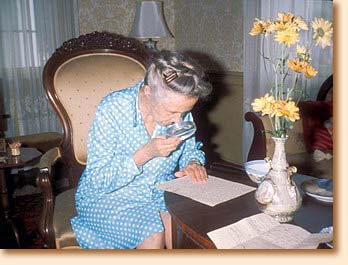 |
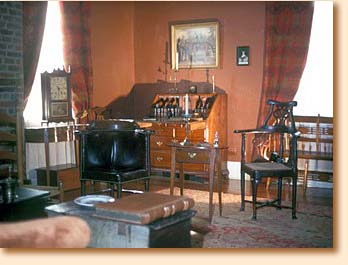 |
| | |
|
Mrs. Barnett: This is the bill of sale to my great, grandfather from Mr. Cadman
for Lucinda, her children and her increase forever. The price was $1,400.
|
| | |
|
 |
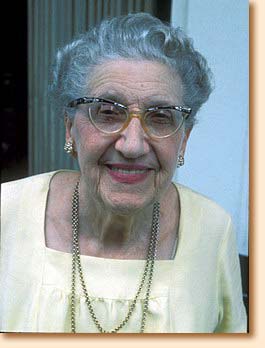 |
| | |
|
Mrs.
Hill (her friend from another plantation home): But you see, when they came
here they were savages, and I think instead of blaming the South like the North
blamed us, I think we deserve a bit of credit. They sold them to us and they
knew they were selling us savages. But they just kept sending them.
|
| | |
|
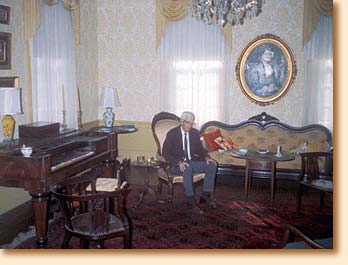 |
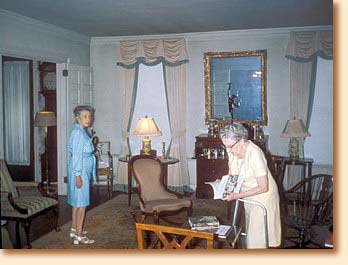 |
| | |
|
And then
they began talking about our harsh treatment, but you know when you had people
working for you, you would do every-thing for them, feed them up, give them
clothes and housing and take care of them.
Mrs. Barnett: The white people would do anything for the niggers except get off
their back, as they say. (laughter) One thing is sure. We still miss them.
Mrs.
Hill: Yeah, we do miss them.
|
| | |
|
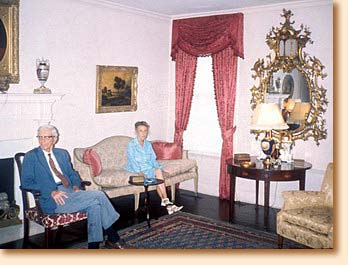 |
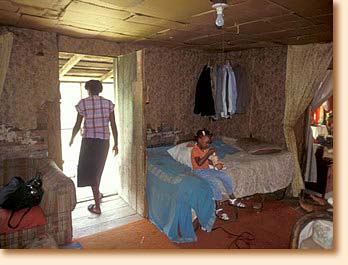 |
| | |
|
When a "house slave" came in with afternoon tea, the talk, as always in the
Southern aristocracy, turned to the follies of their servants-away for them to
maintain their paternalistic attitude toward the blacks and thus give
themselves the social distinction of previous times.
|
| | |
|
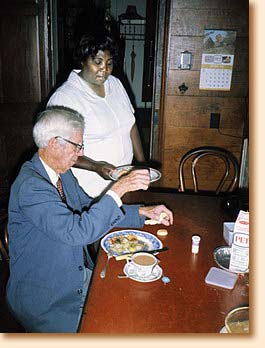 |
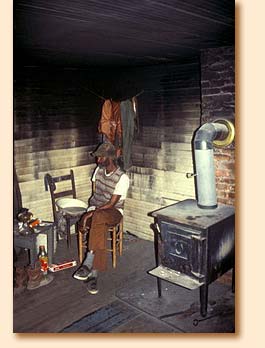 |
| | |
|
What Mrs. Barnett misses is not slaves as a work force, but the
old mutual dependence of slave and master. The fact that one could lose a slave
worth more than $1,400 through sickness instilled in the white upper class a
paternal concern and responsibility for the slaves.
|
| | |
|
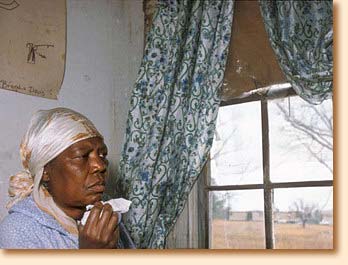 |
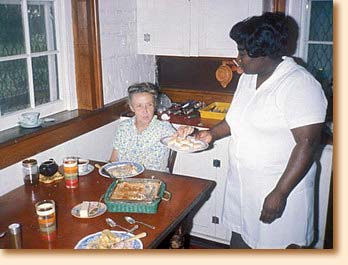 |
| | |
|
The upper class became dependent on this responsibility as a
kind of love. In Mrs. Barnett's case this love shows itself best in her great
work on behalf of black prisoners with life sentences in the local penitentiary,
- in other words, in a need to express love for a group of blacks who, like the
slaves, are not free.
|
| | |
|
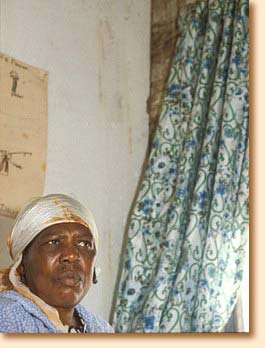 |
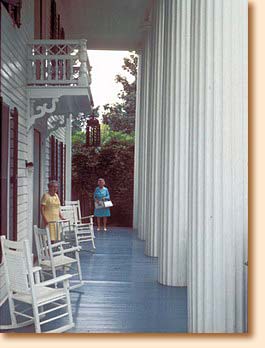 |
| | |
|
Was this the type of racism I myself was developing in this
society? Or how long could I hold on to the naive idea that as a
foreigner I could keep afloat in this ocean of racism - drowning everybody else?
|
| | |
|
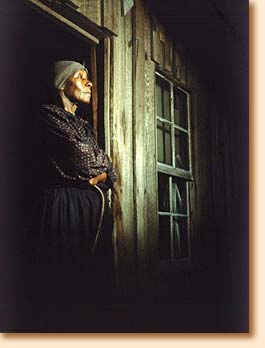 |
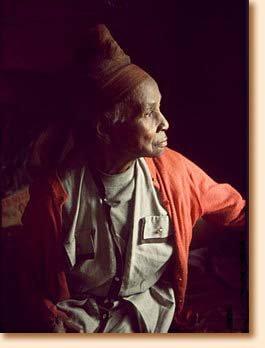 |
| | |
|
In the South I had experienced two completely opposite white reactions
towards blacks: hatred and love. Value judgments such as good and evil began to
disintegrate inside me the more I saw these peculiar white reactions as being
products of a centuries-old system. I could no longer hate these whites in
spite of their trail of destruction.
|
| | |
|
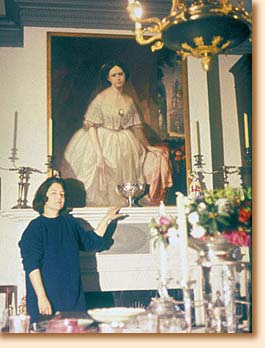 |
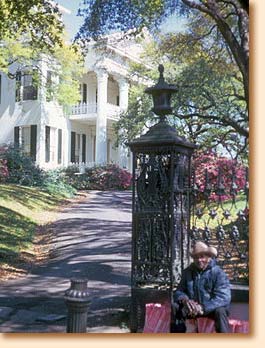 |
| | |
|
From this moment, I could show them
respect and understanding, and doors began to open everywhere: the doors of
Southern hospitality. When I later traveled among South African whites, I met
an even more overwhelming hospitality which seemed directly proportional to a
greater class difference between blacks and whites. Just as in South Africa,
blacks in the South receive the traditional friendliness as long as they have
underclass status.
|
| | |
|
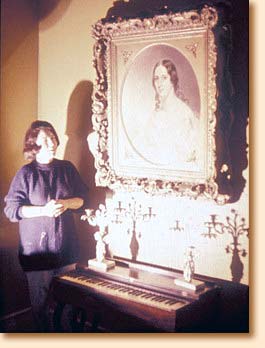 |
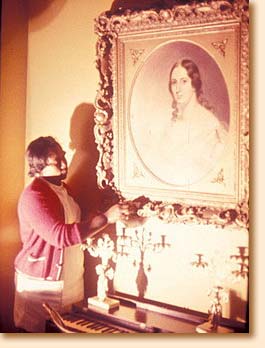 |
|
|
|
They are not paid mainly for their work, but rather for
their servility and humility, for knowing their place and being dependent.
Their passive resistance to this subjugation is seen as "irresponsibility" and
"shiftlessness" which further confirms the "necessity" of the paternal
relationship, thereby increasing white status. This artificially high status
adds to the psychic surplus displayed, for instance, in an overwhelming
hospitality and friendliness towards the individual but not the group, such as
"Negroes," "Yankees," "communists." |
| | |
|
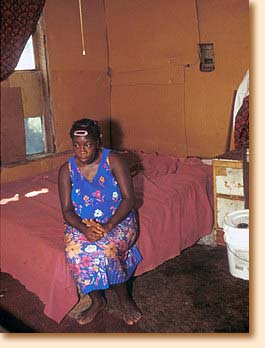 |
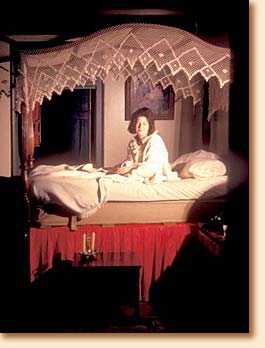 |
|
|
|
I had arrived in one plantation home with my wig
on, but as the hostess had increasingly fallen in love with me,
one night I surprised the dinner party by suddenly displaying all
my hair. The hostess burst out "I know you are a communist, but I
like you anyway."
|
| | |
|
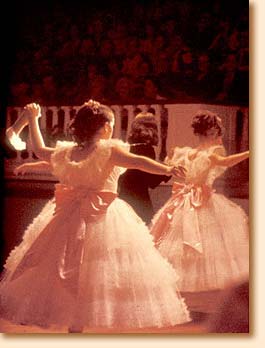 |
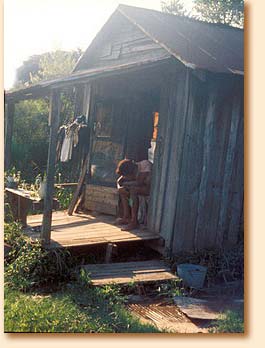 |
|
|
|
This hospitable class may not participate in white
terrorist acts, but it benefits directly from such policing. None of the plantation homes I lived in were
locked although they were filled with gold, silver, and expensive paintings
right next to some of the poorest people on earth, whom I often saw commit
violent crimes towards each other.
|
| | |
|
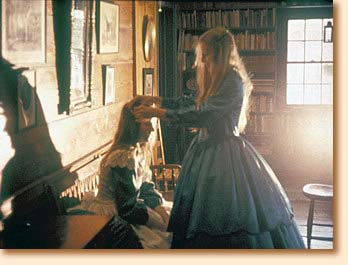 |
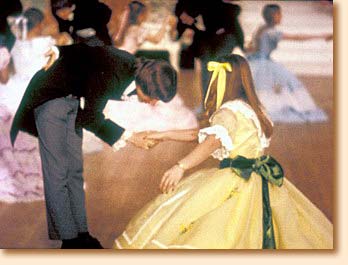 |
|
|
|
One reason I could move around in even the
most dangerous black milieus in the South without fear for my life was thus my
realization that the sense of slavery held its protective umbrella over me
everywhere. And when you are up against a system so deeply ingrained that your
"Scandinavian blue-eyed idealism" is not even understood, you easily give up
and become a participant.
|
| | |
|
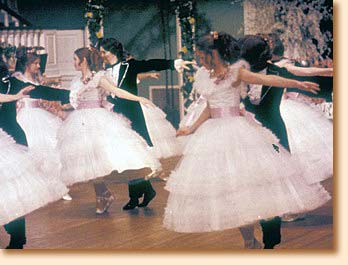 |
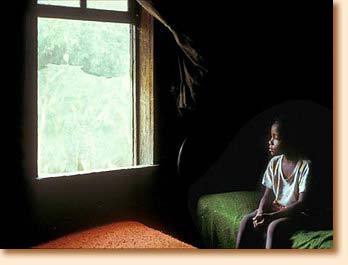 |
|
|
|
Thus I soon learned the self-crippling and basically
uncomfortable art of having black maids serve me breakfast in the canopied bed
(in a separate room from the hostess) and not committing the crime of making my
own bed. In Mississippi I saw the servants spend days dressing up the white
"belles" in antebellum gowns so we could continue the old balls of the
Confederacy, where blacks are only present in the form of a white woman in
blackface acting as
"mammy."
|
| | |
|
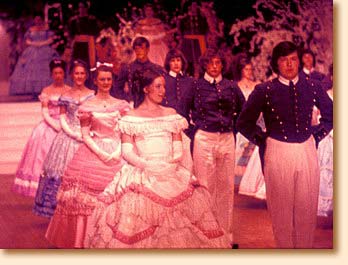 |
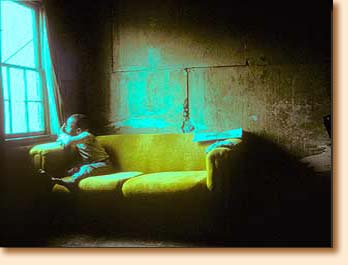 |
|
|
|
I loved these seemingly stand-offish yet incredibly warm, open, and
charming belles. Yet I had to laugh the last time I came back in Natchez in 1978 and found the town
extremely upset about an article in the New York Times describing the
plantation homes as "decadent and promiscuous," having experienced exactly that
myself.
|
| | |
|
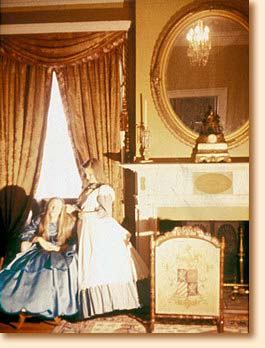 |
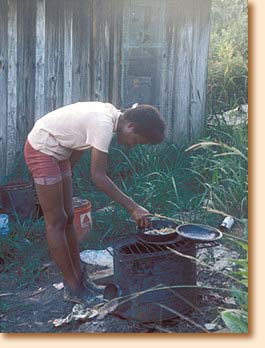 |
|
|
|
And here is to the people of Mississippi,
who say the folks up
North they just don't understand,
|
| | |
|
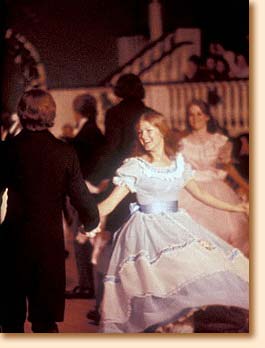 |
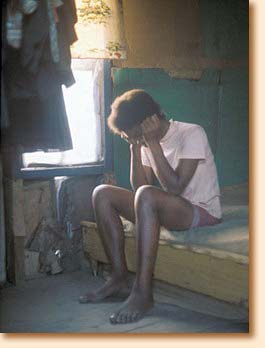 |
|
|
|
and they tremble in the shadows
at the thunder of the Klan.
|
| | |
|
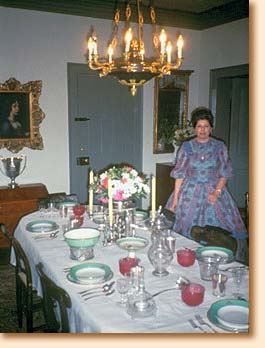 |
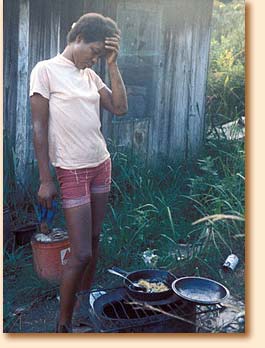 |
|
|
|
Oh, the sweating of their souls
can't wash off the blood from their hands.
|
| | |
|
 |
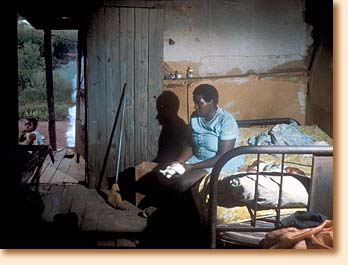 |
|
|
|
For they smile and shrug their shoulders
at the murder of a man.
|
| | |
|
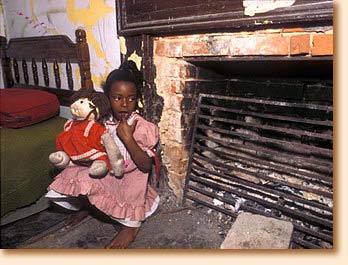 |
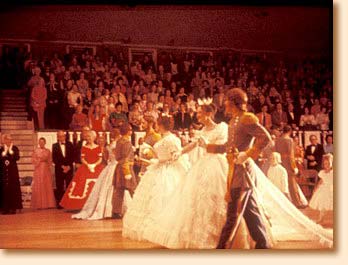 |
| | |
|
And here is to the schools of Mississippi,
where they are teaching all the children that they don't have to
care.
|
| |
|
|
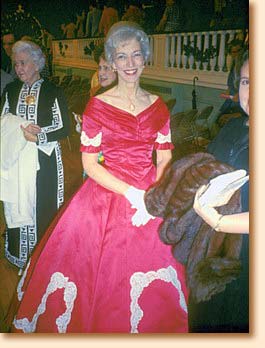 |
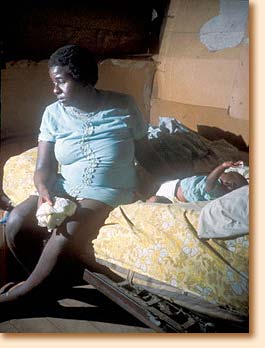 |
| | |
|
All the rudiments of hatred are present everywhere.
And every single classroom is a factory of despair.
|
| | |
|
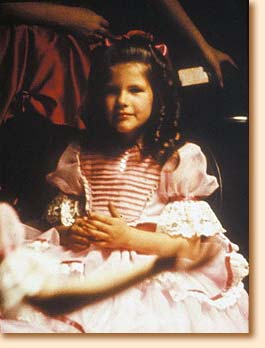 |
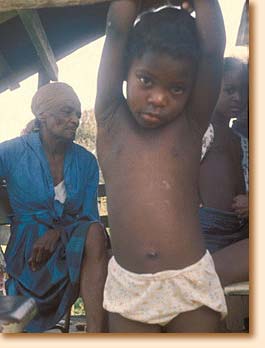 |
| | |
|
And there is nobody learning
such a foreign word as fair!
|
| |
|
|
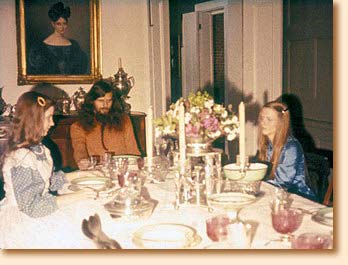 |
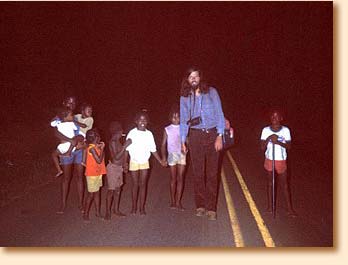 |
| | |
| | |
|
|
| | |